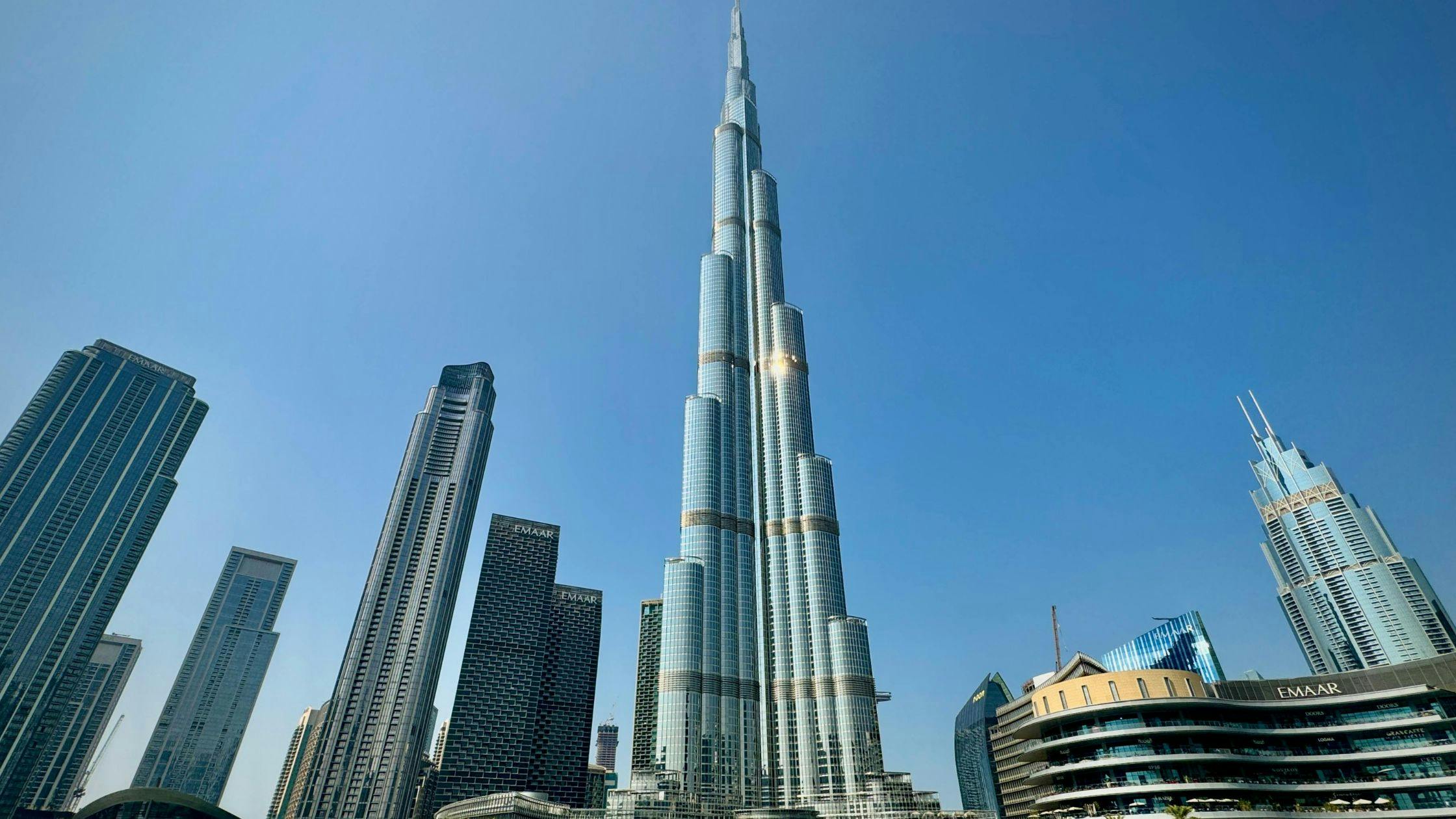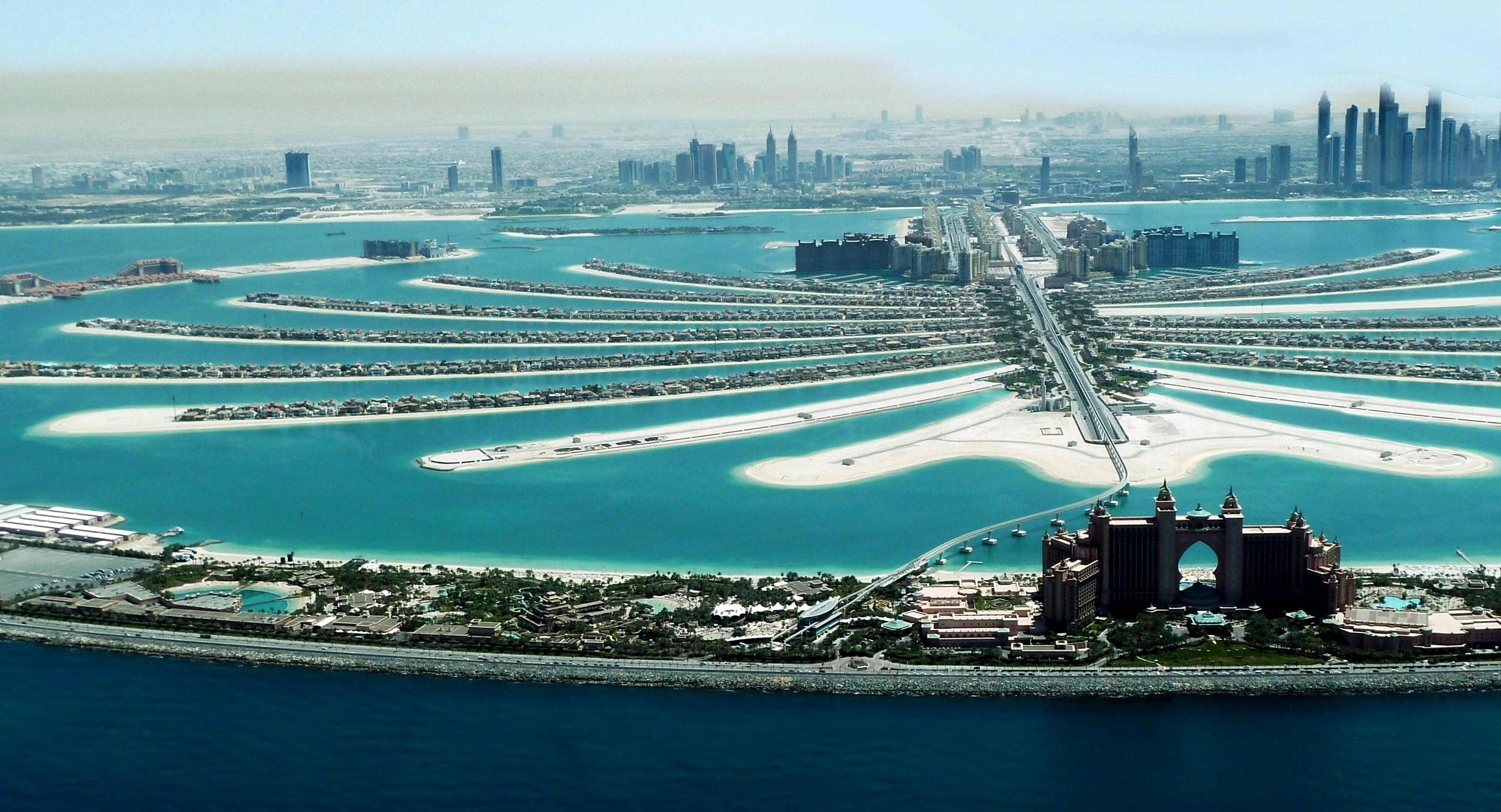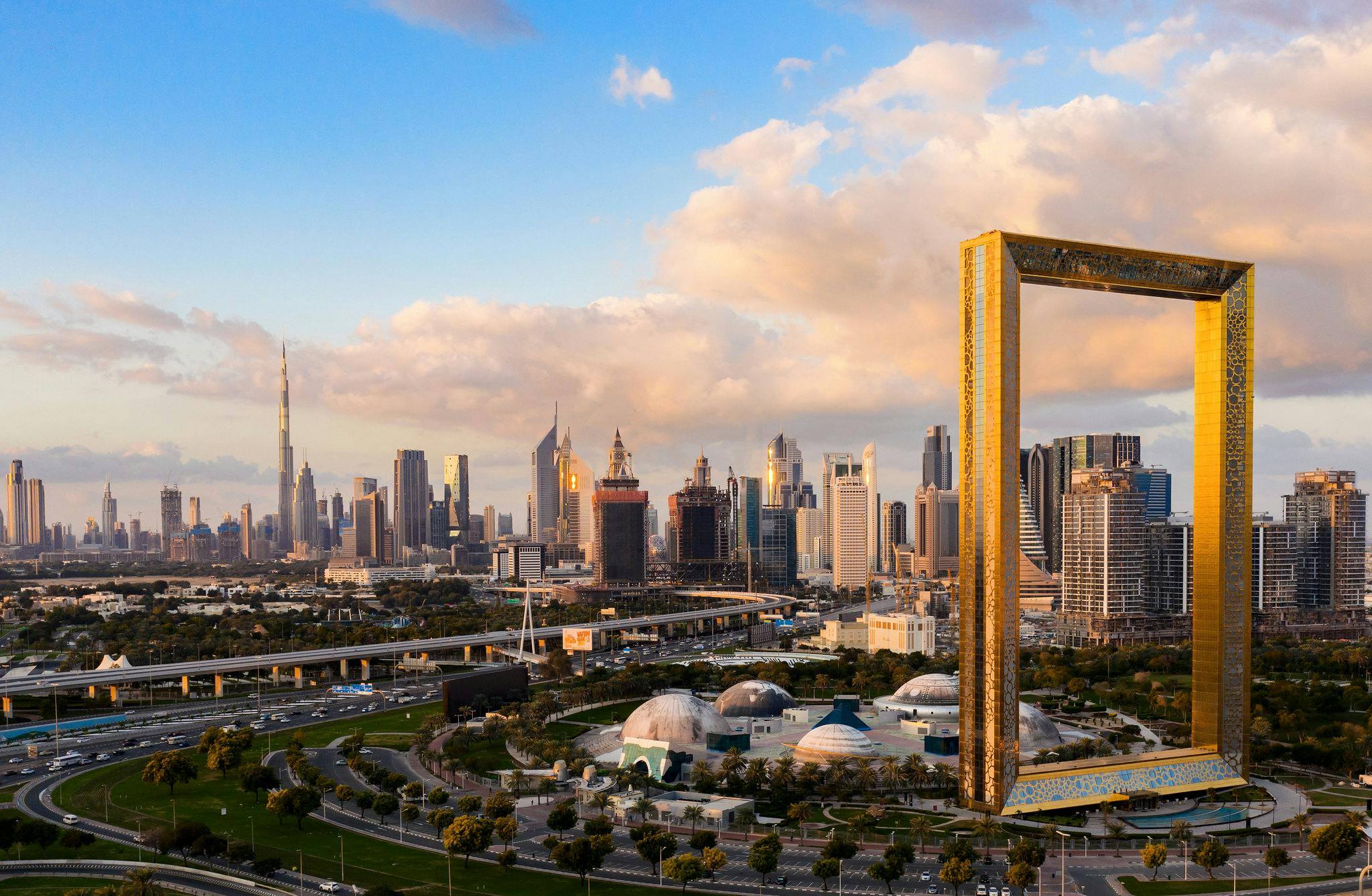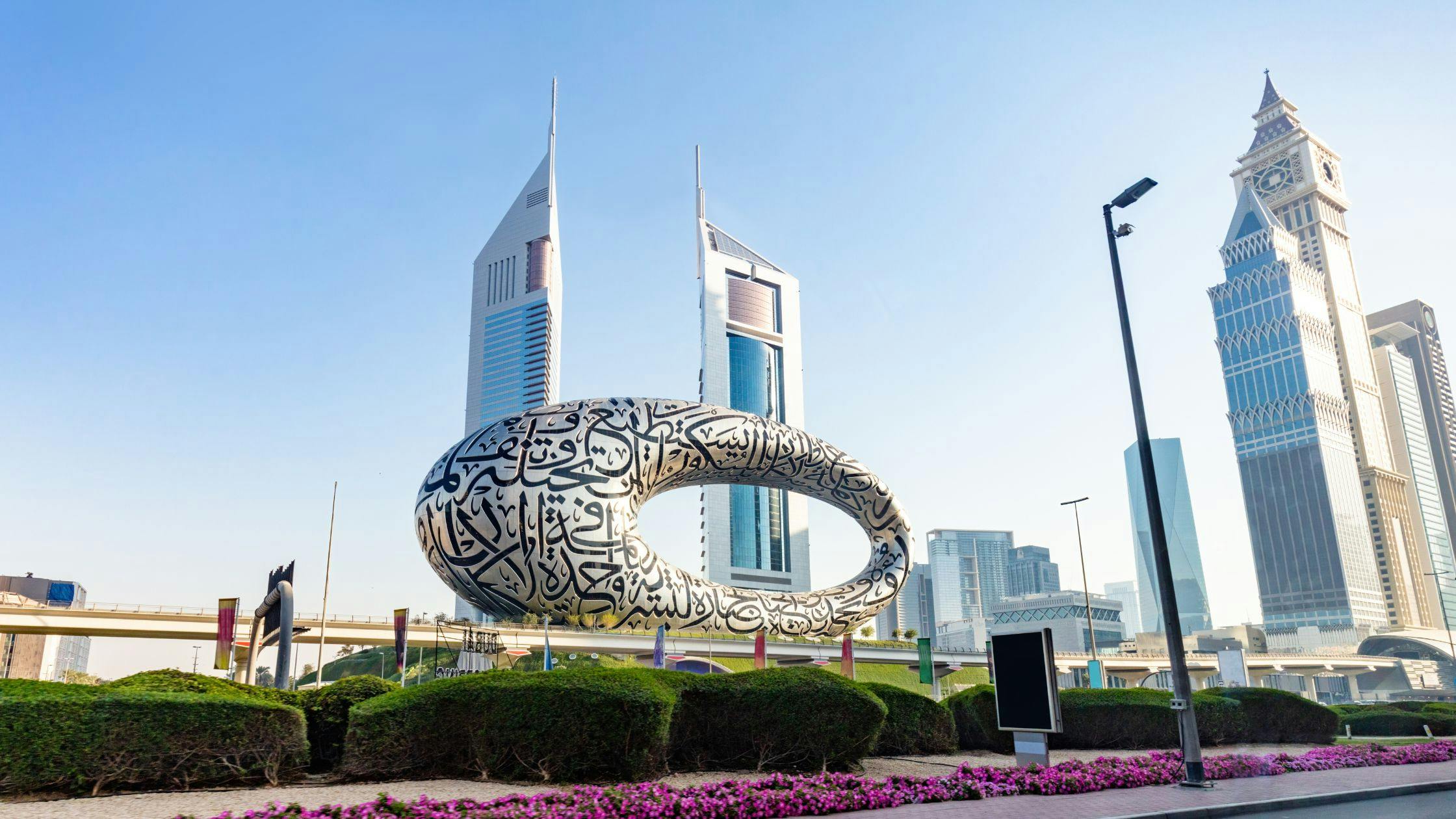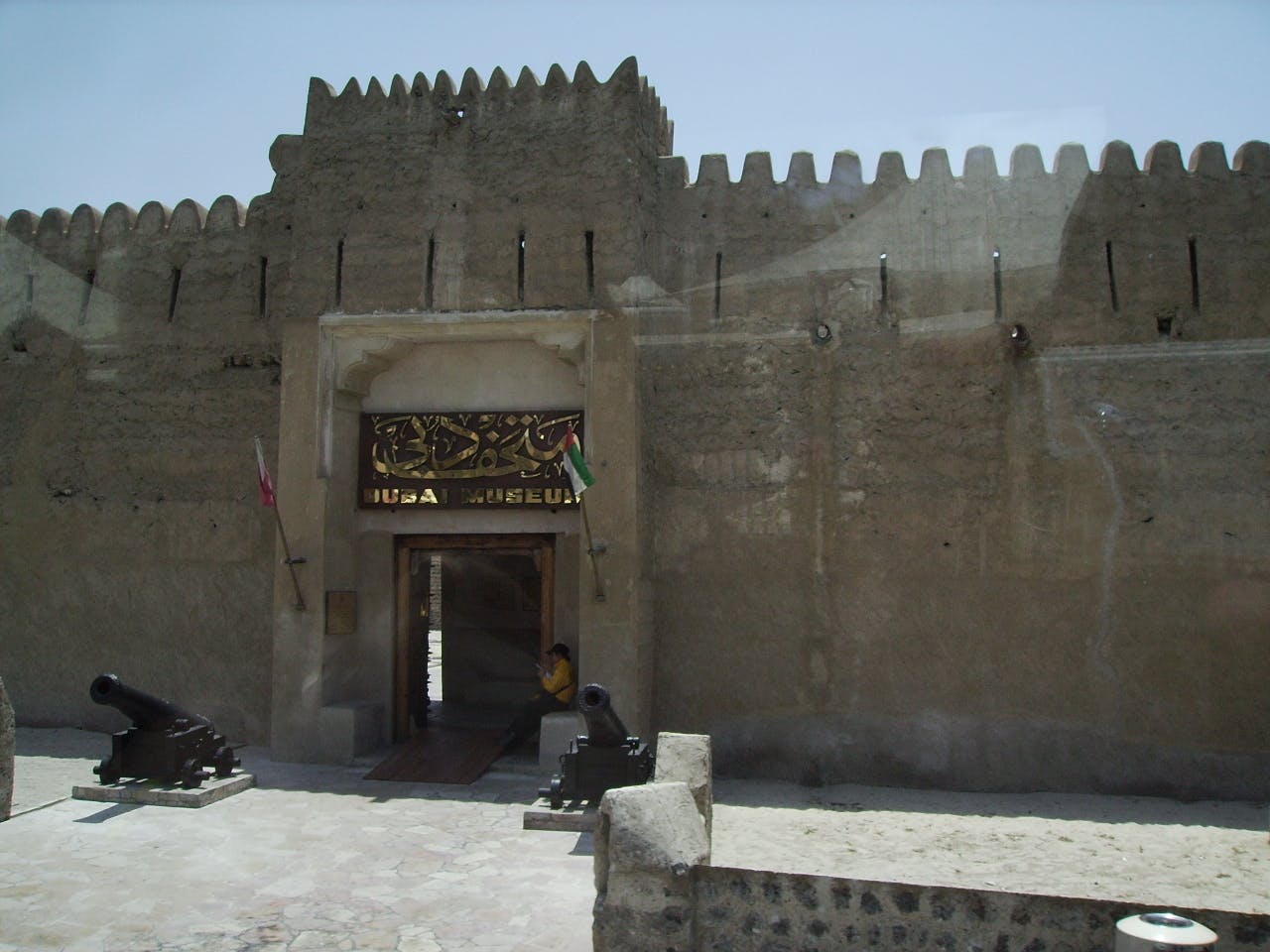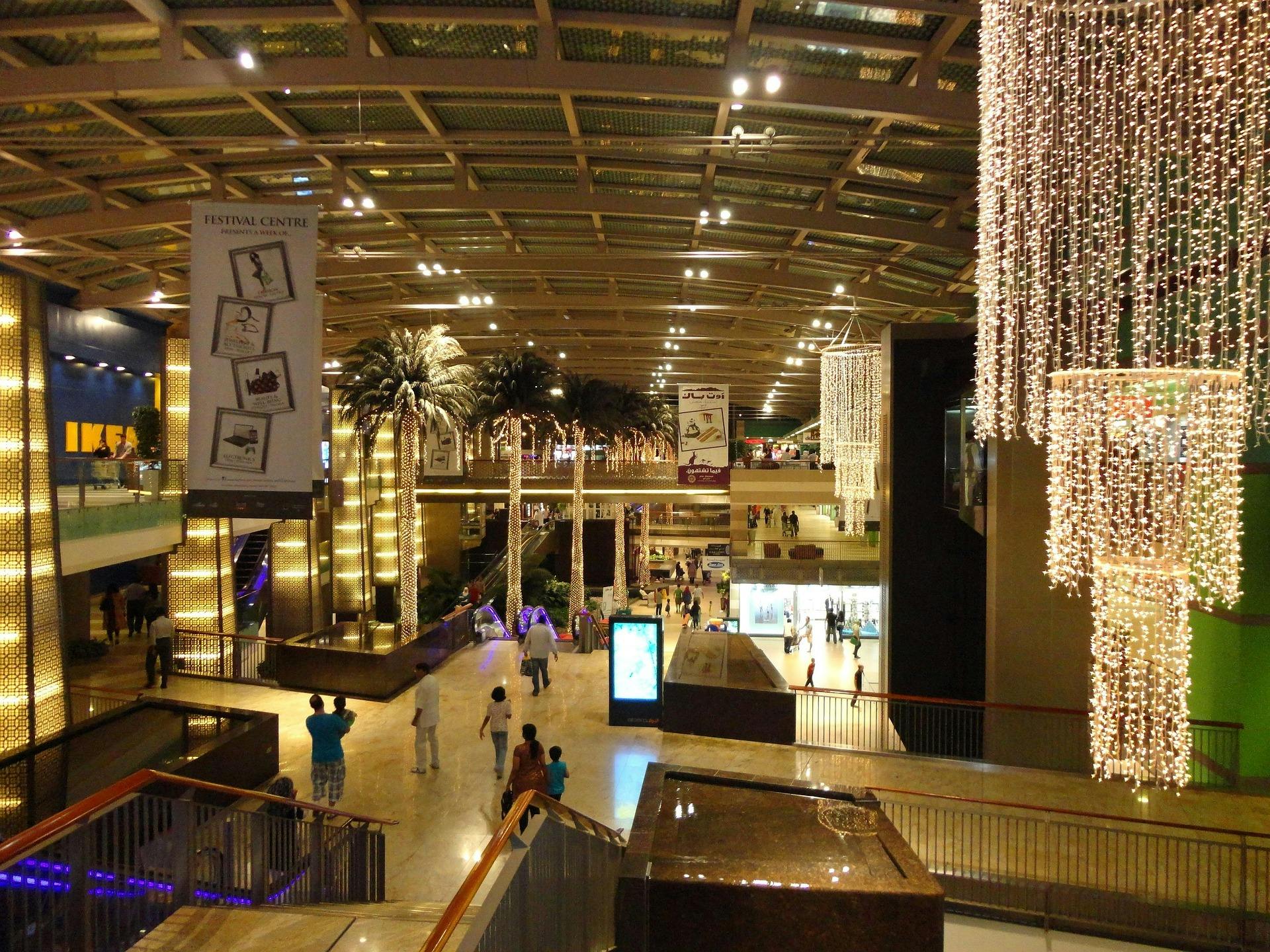Checklist for dubai travel
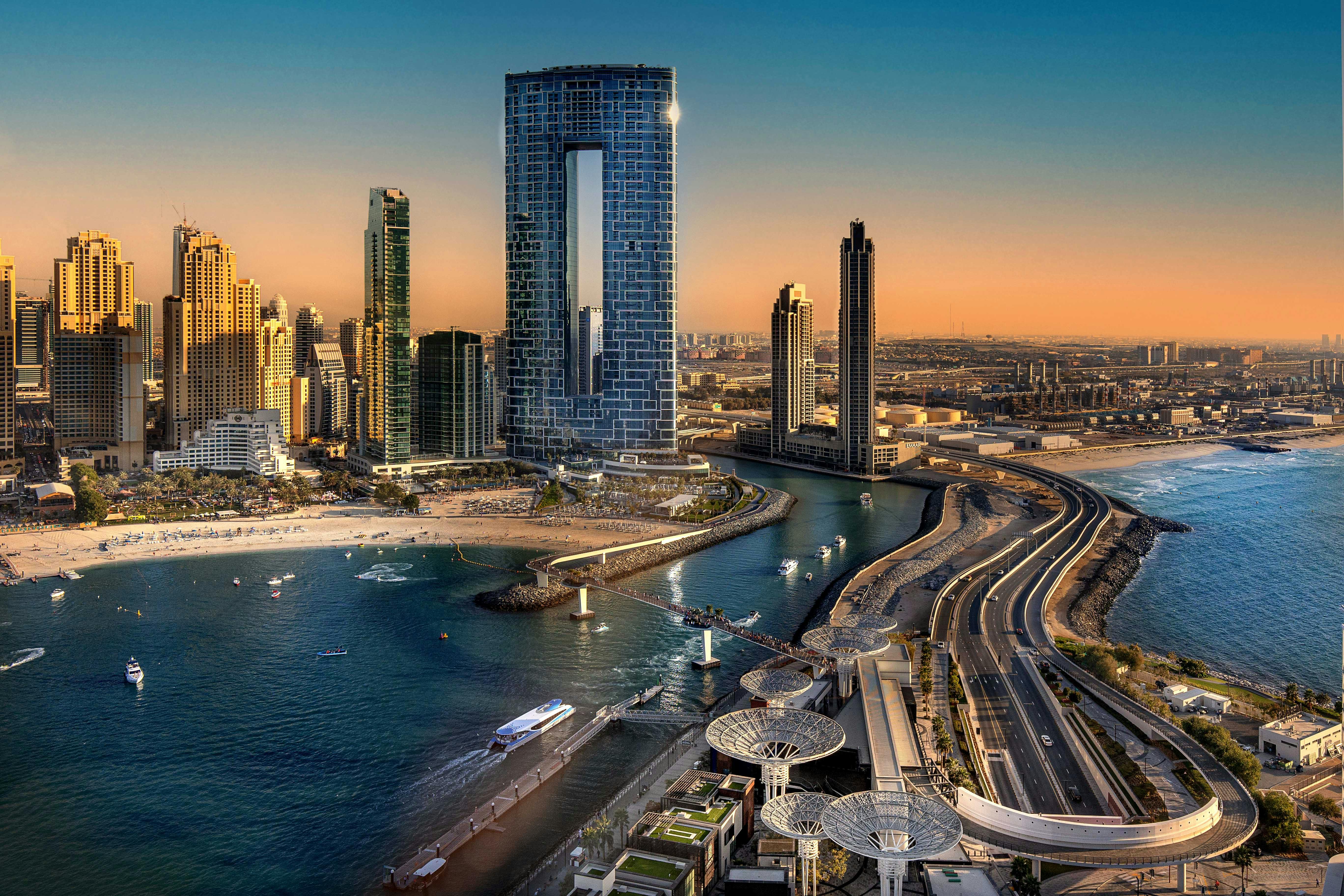
Dubai is a city full of exciting places to visit, things to do, and new experiences. A checklist for Dubai travel is important because it helps you stay organized and ensures you don’t forget anything important during your trip.Whether you're a first-time visitor, a business traveler, or a tourist, having a checklist will help you prepare for all the adventures that await you. This guide is for anyone who plans to visit Dubai, no matter the reason for your trip. It will make your travel smoother, so you can enjoy every moment without worrying about missing essential things.
In this checklist, you’ll find important items like what to pack, how to stay safe, and where to visit. It covers practical tips, such as how to dress for the hot weather and how to handle Dubai’s strict rules on behavior. You’ll also get recommendations for must-see attractions, places to eat, and things to do. By following this checklist for Dubai trip, you can make the most out of your Dubai trip, whether you’re here for business or vacation.
Travel Documents Checklist
- Passport Validity
Your passport must be valid for at least six months when traveling to Dubai. This is important because Dubai will not allow entry if your passport is close to expiring. - Visa Requirements
Some people can enter Dubai without a visa, while others need one. If you need a visa, check if you can get one when you arrive (visa-on-arrival) or if you need to apply ahead of time (pre-approved visa). - Travel Insurance
Travel insurance is not mandatory, but it’s a good idea to have. It helps cover any unexpected situations, like health issues or trip cancellations. It’s smart to get insurance with medical coverage in case you get sick or injured. - COVID-19 or Health-Related Requirements
Because of COVID-19, there may be extra rules. You might need proof of vaccination or a negative test before traveling. Check the latest rules before your trip. - Emirates ID for Residents
If you are a resident of Dubai, you need to carry your Emirates ID. It’s like a special ID for people who live in Dubai. - Copies of Important Documents
It’s always good to have backups of important documents. Make sure you have both printed copies and digital versions of your passport, visa, ID, and any other important papers in case something gets lost.
Flight & Airport Checklist
- Best time to book flights for cheaper fares
To get the best deals on flights, try to book your ticket a few weeks or months before your trip. Avoid booking at the last minute because it’s usually more expensive. - Major airlines flying to Dubai
The big airlines flying to Dubai include Emirates, FlyDubai, and Etihad. These airlines offer many flight options, so check them for the best prices and schedules.
Dubai Airports Overview
There are two main airports in Dubai:
- Dubai International Airport (DXB): This is the biggest airport and the most popular one for travelers.
- Al Maktoum International Airport (DWC): This airport is smaller and mostly used by certain airlines, but it’s still a good choice for some travelers.
Arrival Tips
- Immigration process: When you arrive, you’ll need to go through immigration where they check your passport and visa. This can take some time, so be patient.
- Baggage claim: After immigration, go to baggage claim to pick up your luggage. Make sure to check the screens for your baggage carousel number.
- Airport transfer options: Once you have your bags, you’ll need to get to your hotel. You can take the metro, which is fast and affordable, or grab a taxi or use a ride-sharing app like Uber or Careem. You can also pre-book a hotel transfer.
Accommodation Checklist
- Book Your Stay
Choose a hotel or Airbnb in a good area that fits your trip plans. Make sure it’s close to the places you want to visit to save time. - Check-in and Check-out Times
Check what time you can check in when you arrive and what time you need to leave. Some places may let you check in early or check out later for extra fees. - Extra Fees
Some hotels charge extra for things like internet, parking, or using the pool. Ask about these fees before booking so you’re not surprised later. - Breakfast
Find out if the hotel includes breakfast. Some places offer free breakfast, but others might charge extra for it. It’s good to know before you book. - Booking Confirmation
Keep a copy of your hotel or Airbnb booking. This helps if there’s any confusion when you arrive. You can show the confirmation if you need help checking in.
Best Areas to Stay
- Luxury:
For a fancy experience, book a hotel in Downtown Dubai or Palm Jumeirah. These areas have luxury resorts with amazing views and attractions nearby. - Mid-range:
Dubai Marina and Jumeirah Beach offer a good mix of comfort and price. These areas have nice hotels and are close to shopping, restaurants, and beaches. - Budget-friendly:
Deira and Bur Dubai are great for saving money while still having fun. These areas are affordable but still close to places you’ll want to see. - Hidden Costs:
Hotels may have extra costs like the Tourism Dirham fee, which helps fund tourism in the area. Also, check for any deposit fees that are refunded after your stay.
Currency & Money Checklist
- Exchange Currency to UAE Dirhams (AED):
The official currency in Dubai is the UAE Dirham (AED). Before you go, exchange your money to AED. You can do this at airports or exchange centers. Keep this money checklist for Dubai trip in mind as sometimes the exchange rate is better at local exchange centers than at the airport. So, check both options to get the best rate. - Check Credit/Debit Card Fees:
If you’re using your international credit or debit card, make sure to ask your bank about any extra fees. Some banks charge a fee for international transactions, so it’s good to know before you start using your card in Dubai. - Withdraw Some Cash:
It’s a good idea to withdraw some cash for small expenses like tips, taxis, or street food. ATMs are easy to find in Dubai, and most of them allow you to withdraw cash in AED. - Install Digital Payment Apps:
Dubai is a modern city, and many places accept digital payments. It’s easy to use apps like Apple Pay or Samsung Pay for shopping or dining. Make sure to install these apps on your phone before your trip for a smooth experience. - Tipping Culture:
In Dubai, it’s common to leave a small tip for services like restaurants, taxis, or hotel staff. Usually, a tip of 10-15% is appreciated but not required.
Budget Estimation
- Luxury Travelers: If you're staying in luxury hotels and enjoying fine dining, you should budget more, around $150-250 a day.
- Mid-range Travelers: For a comfortable stay in decent hotels and some sightseeing, you may need about $75-150 a day.
- Budget Travelers: If you’re staying in budget hotels or hostels, you can get by with $30-75 a day.
Packing & Clothing Checklist
- Clothes for Hot Weather:
Dubai is very hot, especially during the summer (April–September). Pack lightweight, breathable clothes like t-shirts, shorts, and dresses to stay cool. In winter (October–March), you can also bring a light jacket for the evenings, which can get cooler. - Modest Clothing for Public Places:
In public places like malls, restaurants, or mosques, it's important to wear modest clothes. This means covering your shoulders and knees. Women should avoid short skirts or sleeveless tops in these areas. - Swimwear for Water Activities:
If you're visiting beaches, pools, or waterparks, bring your swimwear! Swimwear like swimsuits, bikinis, and trunks are perfect for these activities. Just remember to cover up with a towel when you're not swimming. - Comfortable Shoes & Sandals:
You’ll be walking a lot, so pack comfortable walking shoes for sightseeing and sandals for the beach. Make sure your shoes are easy to wear and comfortable for long days. - Essential Accessories:
Don’t forget sunglasses, a hat, and sunscreen to protect yourself from the sun. The sun in Dubai can be very strong, so it’s important to stay protected. - Power Adapter & Power Bank:
Dubai uses Type G plugs for electricity. Bring a universal travel adapter so you can charge your electronics. A portable power bank is also helpful for charging your phone on long travel days. - SIM Card or eSIM for Connectivity:
To stay connected, buy a SIM card or use an eSIM for internet access while in Dubai. It’s cheaper than using roaming services from your home country. - Prescription Medications:
If you take prescription medicine, make sure to bring it with you. Also, carry a doctor’s note for any medication that may be restricted in Dubai. This helps you avoid any problems at customs.
Transportation Checklist
- Buy or Recharge a Nol Card for Public Transport:
A Nol Card is used to pay for rides on the metro, buses, trams, and water taxis in Dubai. You can buy or recharge it at metro stations or convenience stores. It's a quick and easy way to travel around the city. Make sure to check your balance before traveling. - Download Transport Apps (Careem, Uber, RTA):
Download the Careem, Uber, or RTA apps to easily book taxis or private rides in Dubai. These apps are simple to use and let you book a ride directly from your phone. Just enter your pickup and drop-off location, and the app will find a car for you. - Research Best Transport Modes (Metro, Buses, Taxis):
Dubai has many ways to get around. The Metro is fast and convenient, especially for tourists. Buses cover more areas, and taxis are available anytime. You can choose the best transport option based on where you’re going. Metro is great for fast travel, while taxis are better for door-to-door service. - Consider Renting a Car (If Required):
Renting a car is an option if you want more freedom to explore Dubai at your own pace. To rent a car, you need to be at least 21 years old and have an international driver’s license. It’s a good choice if you’re planning to visit places far from the city. - Check Metro and Public Transport Timings:
The Dubai Metro runs from early morning until late at night, with different times on weekends. RTA buses and tram services also have specific operating hours. Be sure to check the schedules in advance to avoid waiting for a long time. It’s good to know the timings so you can plan your day.
Public Transport Options
- Dubai Metro: It's fast and affordable. The metro has different zones, so the cost depends on how far you travel.
- RTA Buses: The buses cover a wide range of areas and are great for longer trips.
- Trams and Water Taxis: The tram is perfect for traveling within certain parts of Dubai, and water taxis (abras) give you a fun way to travel along the Dubai Creek.
Private Transport
- Taxis (Careem, Uber, RTA): These services are available 24/7 and offer convenient travel around Dubai.
- Car Rentals: If you want to drive yourself, rent a car from a rental company. Remember to bring your international driver’s license.
Do’s and Don’ts of Transport Etiquette
- Do follow the rules and wait in line when using public transport.
- Do be polite to others, give up your seat to people who need it.
- Don’t talk loudly on the phone or disturb other passengers.
- Don’t block the doors or walk in front of moving vehicles.
Attractions & Activities Checklist
- Book Tickets in Advance for Top Attractions:
It’s a good idea to book tickets ahead for popular spots like Burj Khalifa or the Dubai Frame. This saves time and helps avoid long lines and this is one of the most important factors in the checklist for dubai travel. You can easily buy tickets online to ensure you don’t miss out on seeing the best of Dubai. - Plan Desert Safari or Adventure Experiences:
A desert safari is an exciting adventure where you ride in 4x4 vehicles over sand dunes, try camel rides, and enjoy traditional entertainment. You can also plan other adventure activities like skydiving or hot air balloon rides to make your trip extra special. - Make a List of Must-Visit Places:
Make sure to visit the famous Dubai Mall, Palm Jumeirah, and JBR. These places are great for shopping, dining, and enjoying beautiful views. Don't forget to take lots of photos as you explore these popular destinations. - Reserve Spots for Cultural Experiences:
Experience Dubai's history and culture by visiting Old Dubai and the Jumeirah Mosque. These places show the traditional side of Dubai, with beautiful architecture and interesting stories about the past. It’s a great way to learn more about the culture. - Check Entertainment and Event Schedules:
Dubai has lots of events like concerts, shows, and festivals throughout the year. Be sure to check the schedules before your trip so you can attend an exciting event during your stay, like the Dubai Shopping Festival or live performances.
Top Landmarks in Dubai
Cultural & Historical Sites
Adventure & Leisure
Shopping Destinations in Dubai
Food & Dining Checklist
Laws & Cultural Etiquette Checklist
- Dressing Modestly in Public Places:
Dubai has a modest dress code. When in public places, wear clothes that cover your shoulders, chest, and knees. Avoid wearing revealing outfits, especially in malls, mosques, or government buildings. This shows respect for local culture and traditions. - Public Behavior Rules (PDA restrictions, photography laws):
Public displays of affection (PDA), like kissing or hugging, are not allowed in Dubai. Be mindful of local laws and show respect for personal space. Also, never take photos of people, especially women, without asking for their permission. - Alcohol Consumption Laws (licensed venues, drinking age):
Alcohol is only allowed in licensed venues, such as hotels and bars. The legal drinking age in Dubai is 21 years old. Drinking alcohol in public places or being drunk in public is not allowed and could result in serious consequences. - Drug Policies (Zero Tolerance):
Dubai has a strict zero-tolerance policy towards drugs. Possessing or using drugs, even in small amounts, is illegal. The penalties are severe and could include jail time. Be cautious and avoid carrying any illegal substances while traveling. - Respecting Ramadan Rules (Eating & Drinking in Public):
During Ramadan, Muslims fast from sunrise to sunset. If you visit Dubai during this time, avoid eating, drinking, or smoking in public places during daylight hours out of respect for those fasting. Many restaurants may have special rules during Ramadan. - Legal Consequences of Breaking Local Laws:
Breaking laws in Dubai can result in serious penalties like fines, jail time, or deportation. Always follow local rules and respect the culture to avoid any trouble. It’s important to stay informed about the laws and behave responsibly.
Internet & Communication Checklist
- SIM Cards & eSIM for Tourists:
You can buy a SIM card from Du, Etisalat, or Virgin Mobile when you arrive in Dubai. These cards are available at the airport, malls, or official stores. You can also use an eSIM for easy data access without needing a physical card. - WiFi Availability:
Dubai has many free WiFi spots in places like malls, cafes, metro stations, and some public areas. Hotels also provide WiFi for guests, but some may charge for access. It’s good to check the availability before you travel.
Best Apps for Travelers
- Transport (RTA, Careem):
RTA and Careem are popular apps for getting around in Dubai. You can book taxis, buses, and even water taxis with them. It’s easy to use and saves time when traveling. - Navigation (Google Maps, Waze):
Google Maps and Waze are helpful apps for finding directions in Dubai. You can use them to get the best routes for driving or walking. They also show real-time traffic updates. - Language Translation (Google Translate):
Google Translate is useful for understanding and speaking in different languages. It can help translate signs, menus, and conversations, making communication easier if you're unsure about the local language. - Food Delivery (Talabat, Zomato):
Talabat and Zomato are food delivery apps in Dubai. You can use them to order food from local restaurants and have it delivered to your location. It’s a convenient way to try new foods without leaving your accommodation.
Safety & Emergency Checklist
- Emergency Numbers:
In case of an emergency, remember these important numbers in Dubai: Police – 999, Ambulance – 998, and Fire – 997. Save them in your phone or write them down. If you feel in danger or need help, call these numbers. It’s important to have these in your checklist for dubai travel so you can stay safe during your trip. - Consulate & Embassy Contacts:
It’s important to know where your country’s embassy is located in Dubai. If you lose your passport or get into a legal problem, the embassy can help you. They can also assist if you’re in an emergency situation. Write down the embassy's contact info before your trip for safety. - Travel Safety Tips:
Always be careful of scams and pickpockets, especially in busy areas. Don’t leave your bags unattended. If it’s really hot outside, drink lots of water and wear a hat and sunscreen. Stay in well-lit areas at night. By being smart and careful, you can keep yourself safe while traveling. - Hospital & Healthcare Services for Tourists:
Dubai has many hospitals and clinics where tourists can get medical help. These hospitals are good at taking care of tourists and usually speak English. If you feel unwell or need to see a doctor, don’t worry. You can easily find healthcare services that will help you get better quickly. - Lost and Found: What to Do If You Lose Belongings:
If you lose anything important while you’re in Dubai, don’t panic. Report it to the hotel or the local police. Many places, like malls and hotels, have lost and found services. If you’ve lost something valuable, try to remember where you were last. It can help you find it faster.
Departure & Return Travel Checklist
- Check-out Time and Late Departure Solutions:
Before you leave your hotel, check the check-out time. Most hotels require you to check out by noon. If your flight is later, ask if you can extend your check-out or store your luggage. This will give you more time to enjoy the last moments of your trip without rushing. - Airport Transfer Options:
It’s important to arrange your transport to the airport in advance. You can take a taxi, use a ride-sharing service like Uber, or book an airport shuttle. Make sure to leave with enough time to avoid traffic and to get there at least 3 hours before your flight. Plan ahead for a smooth trip. - Duty-Free Shopping at DXB:
At Dubai International Airport (DXB), you can shop for duty-free items. This means you can buy things like perfumes, chocolates, and souvenirs without paying extra taxes. Be sure to check the items available and compare prices. Duty-free shopping is a great way to pick up last-minute gifts or treats. - VAT Refund Process for Tourists:
If you’ve been shopping in Dubai, you might be able to claim a VAT refund. The Value Added Tax (VAT) is a tax added to most goods and services. When leaving the country, you can get some of that tax back at the airport. Make sure to keep your receipts and ask for a VAT refund form in the stores. - Security and Immigration Process:
When you arrive at the airport, you will go through security and immigration. You’ll need to show your passport and boarding pass. Make sure your bags are ready for inspection and follow the signs. Arrive early to have enough time to go through these steps without rushing to your flight. - Keeping Track of Flight Updates:
Before you head to the airport, check your flight status. You can do this online or by calling your airline. Flights can sometimes be delayed or changed. Make sure to keep an eye on any updates so you can adjust your travel plans.

